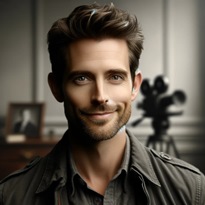
What is the Story Behind Don’t Look Up?
“Don’t Look Up” is a 2021 satirical film directed by Adam McKay, which features a star-studded cast including Leonardo DiCaprio, Jennifer Lawrence, and Meryl Streep. The plot centers around two astronomers who discover a comet on a collision course with Earth. Despite their efforts to warn the world, they face widespread indifference and bureaucratic hurdles.
This narrative serves as a sharp critique of government apathy, media distortion, and public denial in the face of looming disaster.
Is Don’t Look Up Based on a True Story?
While “Don’t Look Up” is not based on actual events, it draws heavily from real-world issues. The film’s allegorical approach highlights society’s response—or lack thereof—to the climate crisis, making it a poignant reflection on current environmental challenges. It uses humor and exaggeration to explore how societal dynamics might play out in a true crisis.
Who Are the Don’t Look Up Characters Based On?
The characters in “Don’t Look Up” are fictional, but they echo real-life figures. The film’s portrayal of political leaders, media personalities, and corporate moguls mirrors actual public figures who often prioritize personal or political gain over scientific evidence and public welfare. This mirroring is intended to provoke thought about leadership and ethics in crisis management.
How Scientifically Accurate is Don’t Look Up?
Scientifically, “Don’t Look Up” takes liberties for dramatic effect. While the scenario of a planet-killing comet is plausible, the movie simplifies astronomical tracking and disaster response to focus on its satirical narrative. Experts in astronomy might find faults in the specifics, but the film accurately captures the often-frustrating intersection of science and public policy.
What Was the Problem in Don’t Look Up?
The core problem in “Don’t Look Up” is not just the approaching comet, but the widespread apathy and denial faced by the protagonists. Their struggle highlights the difficulties scientists often encounter in communicating urgent issues when faced with disinterest and skepticism from both the government and the public.
Is Don’t Look Up a Good Movie?
“Don’t Look Up” has polarized audiences. Critics praise its performances, particularly those of DiCaprio and Lawrence, and its audacious humor. However, some viewers find its satire too on-the-nose. Despite mixed reviews, the film succeeds in sparking conversation about critical issues, making it a significant cinematic work.
Is Don’t Look Up Hit or Flop?
Financially and statistically, “Don’t Look Up” was a hit. Although it had a limited theatrical release, it quickly became one of Netflix’s most-watched movies. The film’s ability to engage viewers and generate dialogue about its themes contributed to its success, despite its polarizing reception.
| Directed by | Adam McKay |
| Screenplay | Adam McKay |
| Starring | Leonardo DiCaprio, Jennifer Lawrence, Meryl Streep, and others |
| Release Date | December 10, 2021 (limited); December 24, 2021 (Netflix) |
| Plot | Astronomers discover a comet that will collide with Earth and attempt to warn humanity. |
| Themes | Satire of government and media indifference to climate crisis. |
| Production Companies | Hyperobject Industries, Bluegrass Films |
| Box Office | $791,863 |
| Budget | $75 million |
| Running Time | 138 minutes |
What is the Deeper Meaning of the Movie Don’t Look Up?
The deeper meaning of “Don’t Look Up” lies in its reflection on human nature and society’s often flawed responses to existential threats. It serves as a metaphor for climate change and other crises where scientific reality is contested by political and media manipulation. The film challenges viewers to consider their own responses to global challenges and the consequences of inaction.
In Conclusion:
“Don’t Look Up” is more than just a film; it’s a societal mirror that forces us to confront uncomfortable truths about our world. With its compelling narrative and powerful performances, it not only entertains but also educates and provokes thought, making it a must-watch for those who value both cinema and social commentary. By reflecting on this film, we are invited to examine the realities we often ignore and the future we are collectively creating.
For further insights and detailed analysis of the true stories behind popular films, visit our website at Istruestory, where we uncover the facts and fiction of cinematic narratives

I am Jeremy Jahns – Your Cinematic Explorer
Immerse in movie reviews, Hollywood insights, and behind-the-scenes stories.